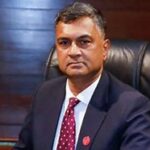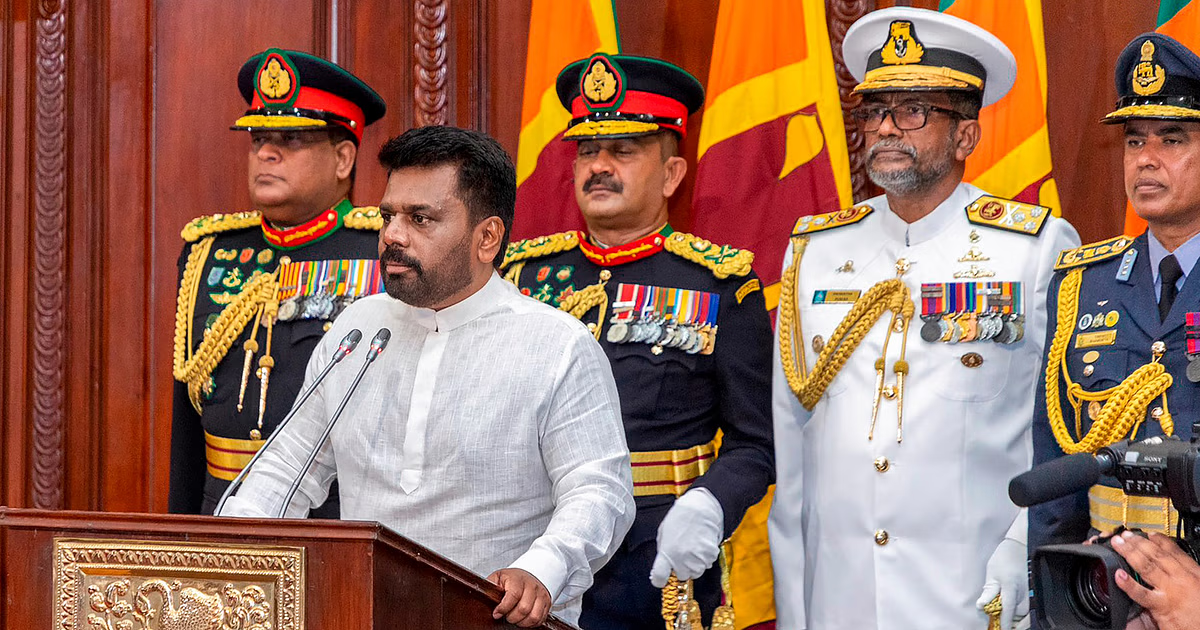
Wide Angle: Analyzing Sri Lanka’s First 100 Days under President Dissanayake
- CNL Reporter
- December 29, 2024
- Weekly Political Review
- President Dissanayake, Sri Lanka
- 0 Comments
Weekly Political Review
Early Challenges and Diplomatic Moves amidst Domestic Discontent
By Rohan Jith
After the first 100 days in office, it remains difficult to gauge the true popularity of President Anura Kumara Dissanayake’s government.
While some argue it’s too early to form a definitive opinion, the real test of the administration’s support will come with the upcoming local government elections, promised before April. These elections will serve as the first significant measure of the Dissanayake presidency’s popular support.
Diplomatic Progress: A Delicate Balance between India and China
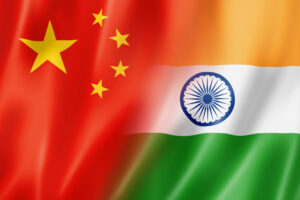
President Dissanayake is set to embark on a state visit to China early in the New Year, following his diplomatic success in India. This visit comes at a crucial time for Sri Lanka, as the country continues to recover from an economic crisis.
The decisions made during this visit will play a pivotal role in shaping Sri Lanka’s economic future, with China presenting significant investment opportunities in sectors like energy, transport, and manufacturing.
However, the stakes are high, as Sri Lanka must carefully balance its growing relationship with China while maintaining strong ties with India.
India, Sri Lanka’s closest neighbor, has historically been a key economic and security partner. It provided emergency aid during Sri Lanka’s financial crisis and is wary of China’s growing influence in the region.
Dissanayake’s challenge will be to reassure India that Sri Lanka’s engagement with China is primarily economic and not politically motivated. He must ensure that Chinese investments do not undermine national sovereignty or create regional tensions.
Economic Recovery: Opportunities and Challenges
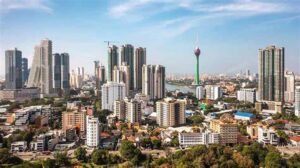
While Chinese investments could help revitalize Sri Lanka’s economy, the country must avoid becoming overly dependent on Beijing, as many other nations have found themselves struggling under the weight of debt incurred through the Belt and Road Initiative.
The priority should be to foster projects that not only stimulate economic growth but also preserve Sri Lanka’s autonomy.
To ensure long-term prosperity, Sri Lanka must diversify its foreign partnerships. Strengthening ties with neighboring countries in the South Asian region and other global powers could provide alternative sources of investment and technology. This strategy would help Sri Lanka avoid over-reliance on any single nation.
Internal Challenges: Scandals and Administrative Struggles

On the domestic front, President Dissanayake’s government has faced significant internal challenges. The new administration has struggled with various issues, including public security incidents and parliamentary scandals.
For example, Deputy Public Security Minister Sunil Watagala recently claimed that his name was used fraudulently to obtain 17 passports, prompting an investigation.
Additionally, several National People’s Power (NPP) MPs have lodged complaints with the Criminal Investigation Department (CID) over issues such as identity theft, false qualifications, and defamatory rumors.
Though the National People’s Power (NPP) Government is only just over a month old, the Criminal Investigation Department (CID) has been kept busy by several of its MPs lodging complaints over different matters.
At least four NPP ministers and MPs have already lodged complaints with the CID.
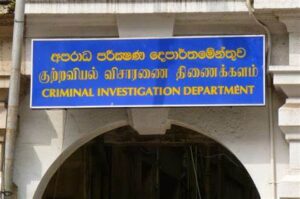
A CID inquiry is already in full swing over a complaint made by Justice Minister Harshana Nanayakkara over the title of ‘Dr.’ being added to his name on Parliament’s website. A team of CID detectives visited Parliament recently and took down statements from several Parliament staff. Two others were also summoned before the CID on Friday to have their statements recorded in connection with this inquiry.
Industries Minister Sunil Handunnetti also recently lodged a CID complaint over a scam being perpetrated via WhatsApp targeting Sri Lankans in several countries and using the minister’s name as a cover.
Meanwhile, Energy Minister Kumara Jayakody has complained to the CID over social media claims that he lacks the academic qualifications he claims to possess.
NPP Colombo District MP Dr. Kaushalya Ariyarathne became the latest NPP member to complain to the CID on Friday regarding what she said was “malicious and false news circulating on social media” that personally targeted her.
The complaint stems from media reports over an alleged romantic affair between an NPP Colombo district male MP and a female MP from the same party. The wife of the NPP MP has also lodged a complaint with the Piliyandala Police.
“If anyone believes such cheap tactics can deter women from participating in politics, they are sorely mistaken. Nor will these tricks harm the government—try harder,” Dr. Ariyarathne said on her Facebook page.
Despite these setbacks, the government has faced criticism for its lack of clear solutions to the country’s pressing issues. Parliamentary debates have often focused more on the qualifications of elected officials than on addressing the serious economic and social challenges facing the nation.
Some MPs have struggled to transition from their roles as opposition critics to responsible government ministers, and administrative inexperience has hindered the government’s ability to effectively address national concerns.
Mixed Economic Results: Continuity and Struggles
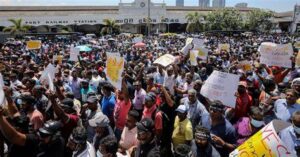
The economic performance of the new government has been a mixed bag. On the positive side, the administration has continued with prudent policies, maintaining Sri Lanka’s participation in the International Monetary Fund (IMF) program and working to stabilize the economy.
Notably, the government successfully completed a commercial debt restructuring, which helped remove the label of a “bankrupt” nation.
However, there have been challenges in the form of shortages in essential goods like rice, coconut, and salt, exacerbated by adverse weather conditions.
These issues have sparked public dissatisfaction, and the government’s inability to address them quickly has tarnished its image.
While the government has inherited some positive economic indicators from its predecessor, including improving foreign currency reserves and stronger growth rates, these results are largely the outcome of policies and international support put in place before Dissanayake took office.
Political Discontent: Frustration with Unfulfilled Promises
The first 100 days of Dissanayake’s presidency have revealed the tension between high public expectations and the reality of governance.
Like their predecessors, government officials have urged patience from the electorate, but the longer the public waits for tangible results, the more likely disillusionment will set in. This disappointment is particularly evident in the government’s inability to resolve key issues quickly or to provide clear, consistent leadership on critical matters.
There are also reports of internal tensions within the ruling party, particularly regarding media control.
Some supporters have called for tighter regulation on ministers and parliamentarians speaking to the media to avoid public contradictions.
While this move may help maintain a more unified public narrative, it also highlights the lack of internal policy coherence and preparation for handling critical issues.
Looking Ahead: Uncertain Future and Long-Term Challenges
As Sri Lanka faces a daunting economic future, the government’s credit rating remains low, and the country is still far from achieving economic stability.
While recent reforms have brought some short-term relief, the country’s long-term success will depend on increasing exports, attracting foreign investment, and generating revenue-driven growth.
The government must also address the pressing challenges of poverty, unemployment, and inflation, which continue to affect the majority of the population.
The upcoming budget in March is expected to focus on stimulating economic growth while protecting vulnerable groups. Furthermore, the government has committed to delivering justice and accountability, including tackling past corruption. However, the true test will be in translating these promises into concrete actions and policies.
In conclusion, President Dissanayake’s first 100 days have been marked by a mix of diplomatic successes, economic struggles, and internal political challenges. While it is still too early to judge the overall performance of his administration, the upcoming local government elections will provide a clearer indication of how the public perceives his leadership and the government’s ability to meet the nation’s expectations.

